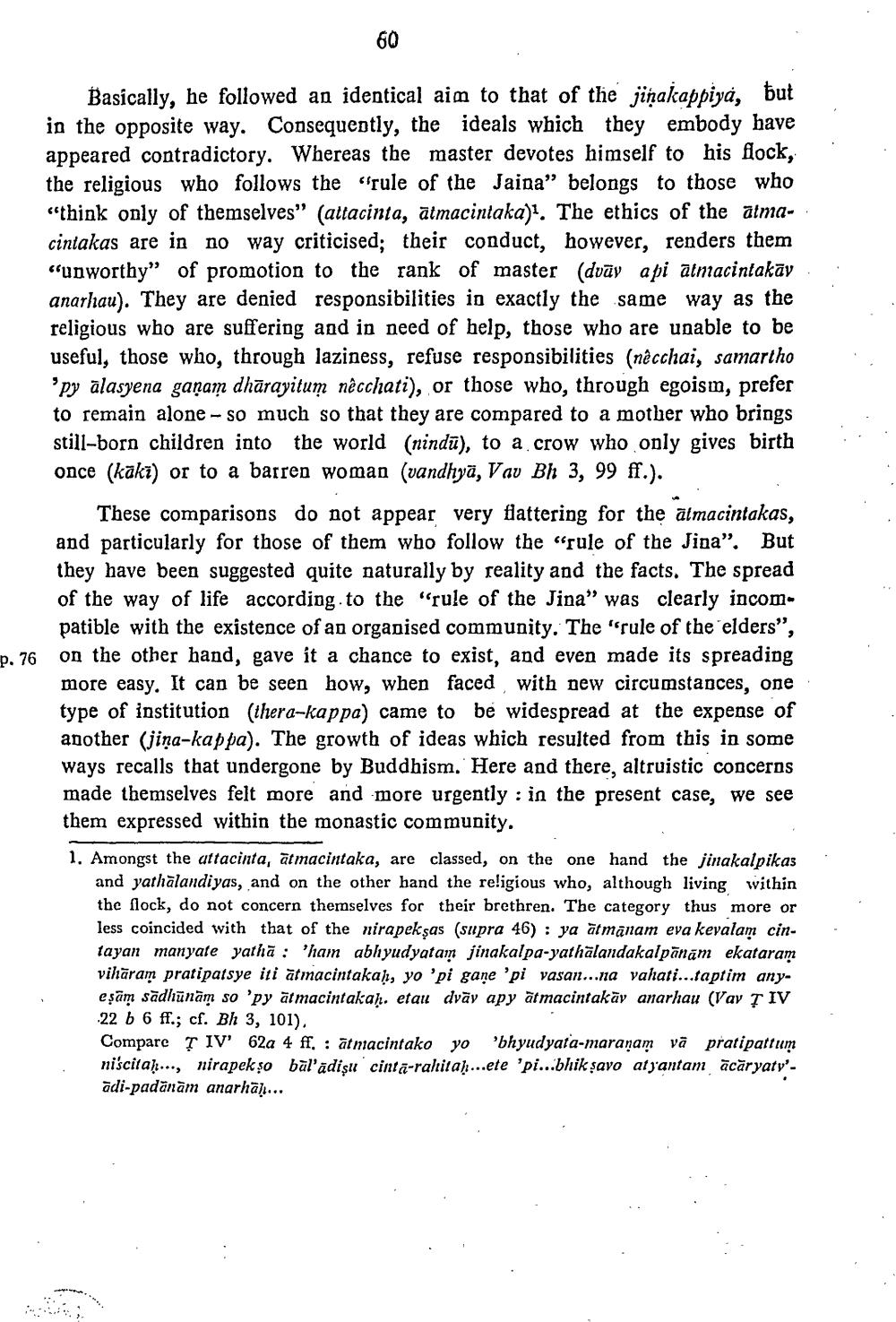________________
60
Basically, he followed an identical aim to that of the jinakappiya, but in the opposite way. Consequently, the ideals which they embody have appeared contradictory. Whereas the master devotes himself to his flock, the religious who follows the "rule of the Jaina" belongs to those who "think only of themselves" (attacinta, ātmacintaka)1. The ethics of the atmacintakas are in no way criticised; their conduct, however, renders them "unworthy" of promotion to the rank of master (dväv api atmacintakāv anarhau). They are denied responsibilities in exactly the same way as the religious who are suffering and in need of help, those who are unable to be useful, those who, through laziness, refuse responsibilities (nêcchai, samartho 'py alasyena gaṇam dhārayitum nêcchati), or those who, through egoism, prefer to remain alone - so much so that they are compared to a mother who brings still-born children into the world (nindu), to a crow who only gives birth once (kāki) or to a barren woman (vandhya, Vav Bh 3, 99 ff.).
p. 76
These comparisons do not appear very flattering for the atmacintakas, and particularly for those of them who follow the "rule of the Jina". But they have been suggested quite naturally by reality and the facts. The spread of the way of life according to the "rule of the Jina" was clearly incompatible with the existence of an organised community. The "rule of the elders", on the other hand, gave it a chance to exist, and even made its spreading more easy. It can be seen how, when faced with new circumstances, one type of institution (thera-kappa) came to be widespread at the expense of another (jina-kappa). The growth of ideas which resulted from this in some ways recalls that undergone by Buddhism. Here and there, altruistic concerns made themselves felt more and more urgently in the present case, we see them expressed within the monastic community.
1. Amongst the attacinta, atmacintaka, are classed, on the one hand the jinakalpikas and yathalandiyas, and on the other hand the religious who, although living within the flock, do not concern themselves for their brethren. The category thus more or less coincided with that of the nirapeksas (supra 46) ya ātmānam eva kevalam cintayan manyate yatha: 'ham abhyudyatam jinakalpa-yathālandakalpānām ekataram vihāram pratipatsye iti ātmacintakaḥ, yo 'pi gane 'pi vasan...na vahati...taptim anyeṣām sādhūnām so 'py atmacintakaḥ. etau dvav apy atmacintakav anarhau (Vav Ț IV 22 b 6 ff.; cf. Bh 3, 101),
atmacintako yo
Compare T IV' 62a 4 ff. 'bhyudyata-maraṇam va pratipattum niscitaḥ..., nirapek ṣo bāl'ādiṣu cinta-rahitaḥ...ete 'pi...bhik savo atyantam ācāryaty'adi-padānām anarhāḥ...




